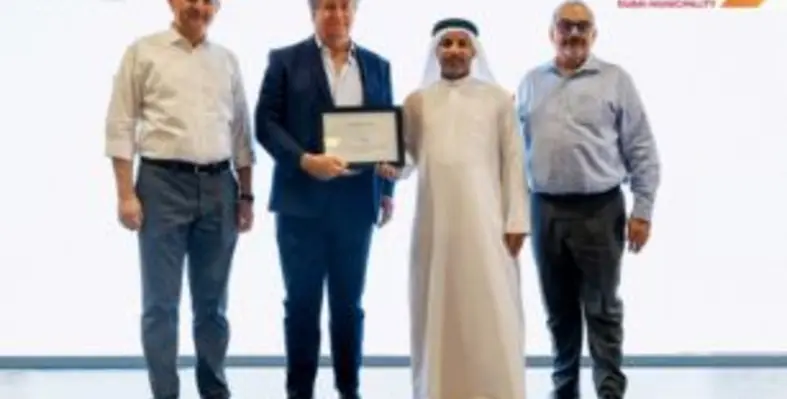Dubai Municipality has granted LINQ a modular construction license to start a pilot project for G+6 buildings
This permit is for constructing buildings with a G+6 building design for the hospitality sector. At an event hosted today by LINQ Modular, which is a subsidiary of ALEC Engineering & Contracting, the company was awarded the license by Dubai Municipality’s head of building systems Ahmad Alsalami.
The permit was given to LINQ following Dubai Municipality's system approval, which complies with all Dubai building codes, apart from the UAE fire and life safety code of practice.
The event was held at LINQ’s factory in Dubai Industrial City, where modules for both hotel rooms and homes are being built. Every room is built and fitted with all the electricals and plumbing, along with any extra fittings that the client may require. The modules contain wheels, which are meant to be run on tracks, so that a worker can easily move the modules on to the next worker.
The factory functions as a facility where rooms are manufactured via an assembly line. The modules are pre-fabricated units that can be assembled together to create complete buildings. According to LINQ, it will be able to produce better quality products, because modular construction necessitates a factory-controlled production environment. This means that every product at the factory will be of the same quality every single time that is manufactured.
Kez Taylor, the CEO of ALEC, said that traditional construction methods are no longer efficient, and that modular construction will be the future of the industry. Echoing the same sentiment, Al Salami added that modular construction will also be the future of mass production. A report by McKinsey showed that modular production can speed up the construction process by as much as 50%, while reducing costs by 20%.
“When you go modular, you transfer the material to the site in the shape of the final unit assembled. You don’t make a lot of trips to deliver loose components. You deliver one module, one time, with all components already installed inside, with MEP, floors, and all other fittings. This reduces the transport and other related costs significantly,” said Bashar Kayali, general manager at LINQ.
Modular construction also fits in with Dubai’s green building regulations, thanks to reduced carbon emissions as compared to on-site construction. "Modular buildings can be designed with recyclable components, ensuring minimal impact on landfills when the building reaches its end-of-life. This focus on sustainability in modular construction aligns with the growing demand for eco-friendly building solutions," concluded Al Salami.







